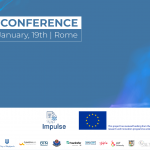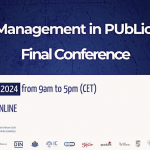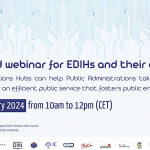
Impact of Blockchain and Artificial Intelligence to Improve Electronic Identities
IMPULSE project focuses on the multidimensional and user-centric analysis of the transformative impact of these two disruptive technologies on electronic identities (eID) for the improvement of digital public services.
Improving online identification processes
IMPULSE “Identity Management in PUbLic Services” aims to transform the mainstream discourse on digital identity by drawing up a user-centric multi-stage method of multidisciplinary evaluation of eID management that combines the bottom-up approach of co-creation with the need for a universal vision of digital identity ethics in providing public services.

MOTIVATION
The demand of more secure digital services, the opportunity to use disruptive technologies and various challenges.

GOALS
6 goals related to public service’s demands, disruptive technologies supporting advanced eID and roadmaps.

OUTCOMES
A framework for a holistic integration of AI and blockchain technology, and actionable roadmaps.

CONSORTIUM
A team of 16 entities from 9 different countries will use Artificial Intelligence and Blockchain to improve online identification processes.

CASE STUDIES
IMPULSE brings together a set of representative and innovative processes as case studies in 5 countries.
LATEST NEWS
- IMPULSE Press Release
 IMPULSE Press Release: IMPULSE’s e-wallet for European administrations presented this morning in Rome
IMPULSE Press Release: IMPULSE’s e-wallet for European administrations presented this morning in Rome - IMPULSE Final Conference
 IMPULSE Final Conference
IMPULSE Final Conference - Webinar for DIH/EDIH and public administrations
 IMPULSE 3rd webinar for EDIHs and their ecosystems.
IMPULSE 3rd webinar for EDIHs and their ecosystems.
“The digitisation of public administration services is one of the seven flagship initiatives identified in the NextGen Europe programme, which gives an idea of the strategic dimension of IMPULSE.”
Luis Pérez Freire, Gradiant, PROJECT COORDINATOR